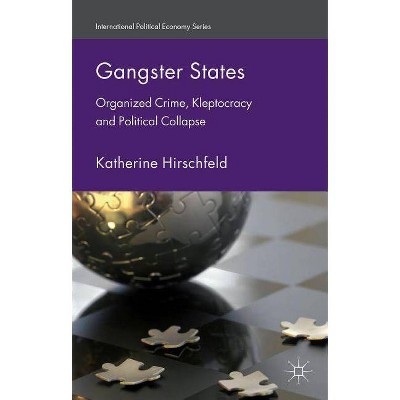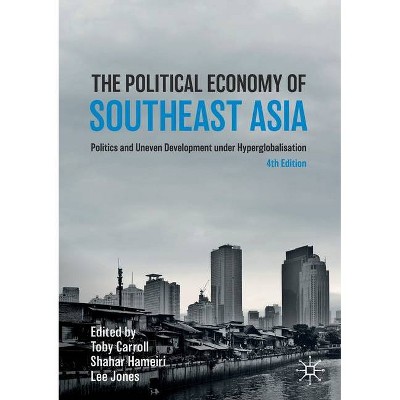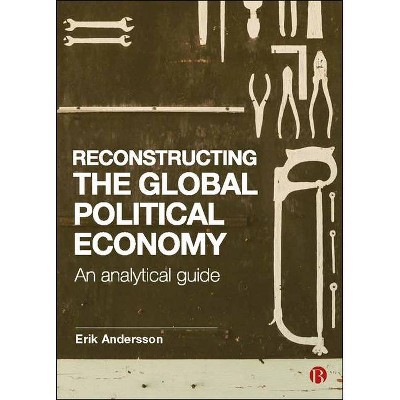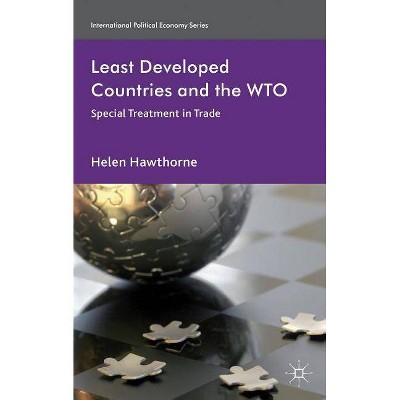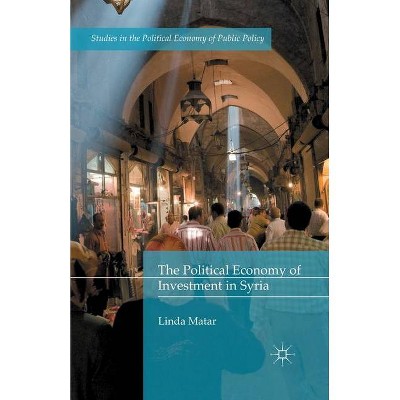The Political Economy of Eastern Europe 30 Years Into the 'Transition' - (International Political Economy) (Hardcover)
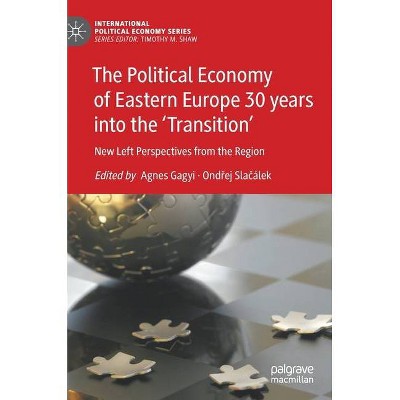
Similar Products
Products of same category from the store
AllProduct info
<p/><br></br><p><b> Book Synopsis </b></p></br></br><p>By the 30th anniversary of the fall of the Berlin Wall, in most parts of Eastern Europe, high expectations associated with postsocialist transition have been substituted by disillusionment. In some countries, right-wing populism made an ideological use of grievances caused by the devastating effects of market liberalization, to replace liberal political hegemony with authoritarian conservative nationalism. In other countries, we witness forms of neoliberalism with increasingly authoritarian elements. Beyond an internal process, what has come often to be described as Eastern Europe's illiberal turn also marks a new shift of international attention on the region.</p> <p>In the Cold War context, and later throughout the first years of regime change, international discussions treated Eastern Europe as a region whose socio-political processes are of global significance. Yet for the following decades, this apparent importance has been substituted with a low-interest acknowledgement of what was understood as a slow and erratic, but unilateral and necessary process of Western integration. In the context of today's geopolitical reorganization, East European examples of right-wing authoritarian politics once again become treated as significant reference points for Western and global politics, and renewed attention towards the region is combined with a new reorganization of knowledge stakes around the question of global historical development.</p> <p>This book represents a contribution to this debate from a distinctive East European perspective: that of new left scholars and activists from the region. Instead of selectively (re)writing the region's history according to changing stakes of international discussions, the book joins those discussions from a perspective anchored in the experience of a generation whose lifetime coincides with the transformations of the postsocialist period. In contrast to the narrative of an overall illiberal shift, they represent the perspective of a new generation of East European left thinkers who came to develop an understanding of their environment in terms of its relations to global capitalist processes. A both theoretical and empirical contribution, the book showcases main lines of contemporary new left East European thought, and provides essential insights on topics conventionally associated with the issue of East European transition. As a contribution to contemporary debates on the present global socio-political transformation, this collection does not only seek to debate analytical statements, but also to change the field where analytical stakes are set, by adding the perspectives of those who think Eastern Europe's global relations from within the regional context and its political stakes.</p> <p>As such, the book is a result of at least a decade of regional dialogues, involving a constant effort against established structures of knowledge-making that prioritize Western perspectives over Eastern European issues. Its authors are thinkers well embedded in their respective countries' new left circles. Thus, beyond authors' own analysis, the chapters throw a light on the broader fields of orientation of regional new left thought. While the critique of methodological nationalism is becoming widespread, a large part of political debates and also political analysis is still produced in national contexts. One of the ambitions of the volume is to make accessible results of new left analysis in postsocialist countries to international audience and debate. As a first English-language collection of East European new left perspectives on the region's postsocialist transformation, the volume simultaneously speaks to three types of audiences: it bridges language barriers for regional audiences interested in each other's perspectives, introduces an internal left perspective on the region's transformation for Western audiences who increasingly turn towards Eastern Europe to understand the roots of new authoritarianism, and it creates connections to broader circles of global left audiences, for whom this book provides a story of subordinated global integration often very similar to their own contexts.</p><p/><br></br><p><b> From the Back Cover </b></p></br></br><p>By the 30th anniversary of the fall of the Berlin Wall, in most parts of Eastern Europe, high expectations associated with postsocialist transition have been substituted by disillusionment. After 1990, Eastern Europe has been internationally treated with a low-interest acknowledgement of what was understood as a slow and erratic, but unquestionable process of integration in a Western-dominated world order. In the context of today's geopolitical reorganization, East European examples of authoritarian politics once again become discussed as significant reference points for Western and global politics. This book represents a contribution to this debate from a distinctive East European perspective: that of new left scholars and activists from the region, whose lifetime largely corresponds to the transformations of the postsocialist period, and who came to develop an understanding of their environment in terms of its relations to global capitalist processes. A both theoretical and empirical contribution, the book provides essential insights on topics conventionally associated with East European transition from privatization to the politicized slogans of corruption or civil society, and analyzes their connection to the newest reconfigurations of postsocialist capitalist regimes. As a contribution to contemporary debates on the present global socio-political transformation, this collection does not only seek to debate analytical statements, but also to change the field where analytical stakes are set, by adding perspectives that think Eastern Europe's global relations from within the regional context and its political stakes.</p> <p><b>Agnes Gagyi </b>works on East European politics and social movements from the perspective of the region's long-term global integration. She is researcher on East European social movements at the University of Gothenburg, and member of the Working Group for Public Sociology "Helyzet" in Budapest.</p> <p><b>Ondřej Slačálek</b> is a political scientist and journalist, he focuses on East European politics, nationalism and social movements. He works at Charles University, Prague. He is a regular collaborator of Czech new left journal <i>A2/A2larm</i>.</p><p/><br></br><p><b> About the Author </b></p></br></br>Agnes Gagyi is a sociologist. She works on East European politics and social movements from the perspective of the region's long-term world-economic and geopolitical integration. Presently she is employed as a researcher on East European social movements at the Department of Sociology and Work Science, University of Gothenburg. She is a founding member of the regional English language forum<i> LeftEast</i>, and of the Working Group for Public Sociology "Helyzet" in Budapest. Besides scholarly publications on East European new left movements, she has been actively involved in organizing meetings and discussions across East European new left scenes. The present book project grew out from regional meetings she organized with the Transnational Institute as part of the New Politics project.<p>Ondřej Slačálek is a political scientist and journalist, he focuses on East European politics, nationalist discourses and social movements from various analytical perspectives. He works at the Department of Political Science, Charles University, Prague. Besides articles in scholarly journals (Patterns of Prejudice, Slavic Review) on nationalism, social movements and musical subcultures of youth, he is a regular collaborator of Czech new left journal A2/A2larm, he was regular collaborator of left-wing daily Právo and editor of streetpaper Nový Prostor and active participant in international debates on post-socialism (Eurozine, LeftEast).</p>
Price History
Price Archive shows prices from various stores, lets you see history and find the cheapest. There is no actual sale on the website. For all support, inquiry and suggestion messagescommunication@pricearchive.us



